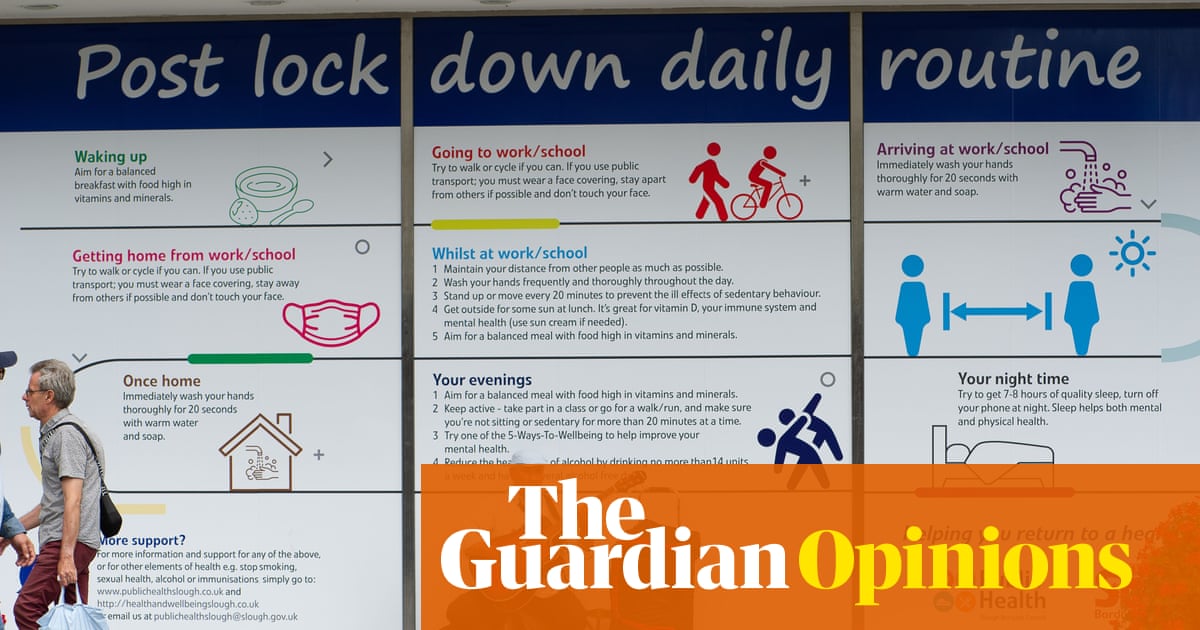
With evidence of new outbreaks of Covid-19 across many countries in Europe, and a day-on-day rise in cases in England over the last week, concerns about an imminent second wave are well-founded. Some argue that the term “second wave” is itself unhelpful as, unlike the rise and fall of seasonal flu or the catastrophic second wave of the 1918 influenza pandemic, the causes of this particular resurgence are entirely due to human factors.
The imposition of extreme lockdown restrictions in most countries around the world earlier this year was an act of desperation; in effect it represented the failure of disease control, not its success. In the absence of a vaccine or a fundamental evolutionary shift in the virus’s properties (it naturally becoming less deadly), the challenges of Covid-19 – a rapid case-doubling time, the infectiousness of pre-symptomatic cases, and the high mortality and potential for long-term health problems – that have made its control an imperative will not have gone away. With lockdown being eased around the world, opportunities for transmission have increased, reproduction numbers have gone up, outbreaks have increased in size, frequency and intensity, and renewed restrictions are being imposed in many countries including, on a regional basis, in the UK.
Recently this rise in cases in Europe has led to the imposition of renewed quarantine for individuals entering or re-entering the UK from Spain. While these efforts to prevent fresh introductions arising in the UK are a sensible precaution, it must be recognised that international travel, while fundamental to the way Covid-19 initially spread from Wuhan in China, it is not fundamental to the problem we face now. In the UK and in England in particular, local incidence prior to travel restrictions had remained high. Recent rises in outbreaks in the north of England have led to the reintroduction of local, partial lockdown measures. While there are suggestions that it could be due to either imperfect social distancing, or possibly employment practices, there is no evidence that travel-based introductions are the culprit.
Most of these new outbreaks have occurred in England, and it is here where the greatest concerns lie. As a result, the evidence that these outbreaks are becoming too frequent has now led to a slowing down of relaxation. In Scotland, a more cautious approach – combined with clear messaging from the devolved government about the approach to reducing lockdown – and more decisive action on the use of face masks have resulted in higher approval ratings and, therefore, a likely better engagement with Scotland’s approach to control.
Combined with the natural advantages of a smaller, less dense population and a later arrival of Covid-19, Scotland has fared relatively well, despite criticisms of the early government response, disparities in testing rates across care homes and concerns over high death rates in what are some of the most deprived areas in the UK. Now, with few deaths in recent weeks, a path towards eradication is a tantalising possibility. Despite this relative success, Scotland faces many of the same challenges that England faces. Clusters of Covid-19 cases are still occurring, sometimes in the most unlikely places. So long as this is the case, the balancing act between the need for progress towards easing restrictions and the risks of a second wave will continue. With an R number that remains close to one the continued appearance of infection clusters and the prospect of increasing numbers of introduced cases from elsewhere, Scotland’s test and protect system – like England’s test and trace – may soon be stressed to new levels.
Further challenges are likely to arise over the coming months. NHS staff have been stretched in many cases to their limits, and many other health conditions have been neglected in the fight to contain Covid-19. Economic uncertainty continues and the potentially destabilising impact of Brexit looms in December. Winter will likely mean increased time spent indoors and therefore less social distancing, with more frequent contacts in spaces where aerosol transmission is more likely. Cold and humid conditions may also be a factor; these are believed to play a role in other coronaviruses that infect humans and with influenza, and may also be a factor in the risks associated with Covid-19 transmission in abattoirs. Combined with the likely rise of seasonal influenza cases in those same months, the potential for the NHS to become overwhelmed are considerable.
However, all is not doom and gloom. While lockdown has not been the cure for Covid-19, that was never its purpose. What it has done is to buy us time. Extensive systems for testing and tracing are now in place and while still subject to criticism, they will get better with experience and effort. Clean face masks and hand-washing will likely help reduce transmission, even when social distancing measures are relaxed. Clinical research has led to better therapies for the severely affected. Better surveillance tools are being developed. While the road remains long, we are now closer to a possible vaccine. And though direct comparisons are always difficult, there have been success stories such as New Zealand and British Columbia. Perhaps most remarkably, the example of Rwanda cannot be ignored, showing what dedication, hard work and experience can do even with limited resources. These examples show us that, while the path to successful Covid-19 control is fraught with difficulty, it is not impossible.
• Rowland Kao is the Sir Timothy O’Shea professor of veterinary epidemiology and data science at the University of Edinburgh
The Guardian







